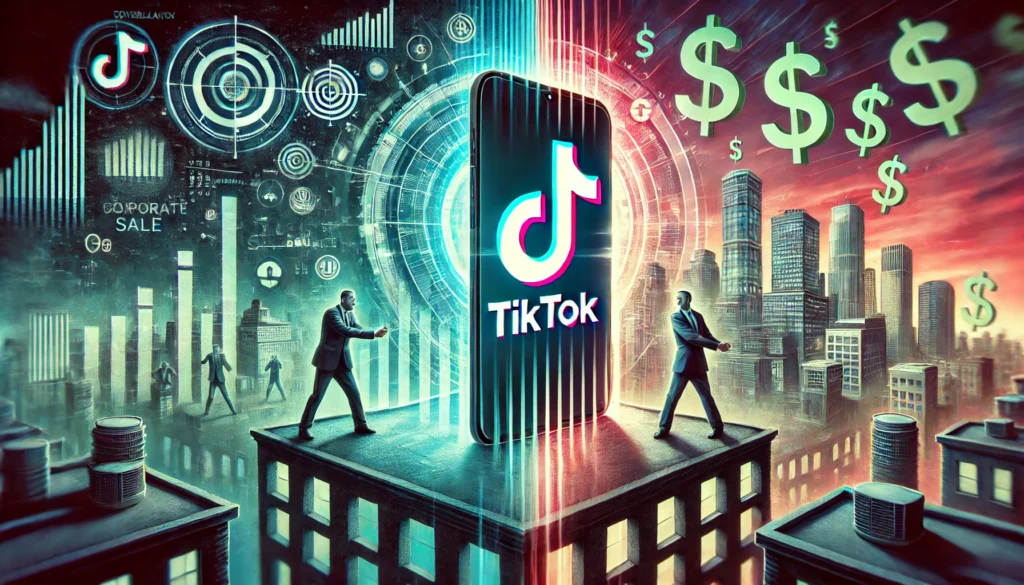TikTok, the popular short-form video app sweeping worldwide, now stands before an uncertain future in America. Amid growing concerns regarding national security, data privacy issues, and Chinese ownership concerns, TikTok could face being banned or forced to be sold off to U.S.-based firms; we will examine what factors may shape its trajectory here before considering the potential outcomes of each outcome scenario.
The Case for a Ban: National Security and Data Privacy Concerns
At the core of TikTok’s future in America lies data security concerns. Owned by Chinese company ByteDance, TikTok has raised the alarm over potential Chinese government access to US users’ data, leading US lawmakers from both chambers to express concern that TikTok may become used by CCP for surveillance.
Key Points:
- Data Collection: TTikTok collects vast amounts of user data ranging from their preferences and behavior, geolocation information and geo-social connections. Critics argue that this data could be made accessible by Chinese intelligence services under China’s data laws, which mandate that companies cooperate with state intelligence services.
- Influence Operations: TikTok’s algorithm is frequently called opaque and manipulative, can possibly be used in a way to disseminate false information, alter the public’s opinion, and cause the political divide.
- Bipartisan support: This worry over TikTok has gained support from throughout the political spectrum of the US, with both Democrats as well as Republicans advocating for an end to the application in light of national security threats.
The Case for a Sale: Preserving the Platform, but with US Ownership
TikTok may be sold off to an American company as another potential solution, which would enable its continued operation within America while mitigating national security risks associated with Chinese ownership of TikTok.
Key Points:
- Reassurance on Data: Microsoft or Oracle could help allay users’ fears over data privacy by adhering to US laws and regulations that safeguard users’ information against being passed onto Chinese authorities.
- Maintaining Popularity: TikTok has quickly become one of the most beloved apps in America with millions of active users and content creators; selling would allow its user base and creators to thrive while banning could devastate an integral part of our digital economy, particularly influencers and small businesses who depend heavily on its platform for exposure.
- A Precedent for Acquisitions: Similar deals have occurred in the past when foreign tech companies have been pressured to sell their US subsidiaries. For instance, China’s Tencent was required to divest its stake in U.S.-based Supercell as a result of national security concerns.
However, even with an acquisition deal completed, not all issues pertaining to TikTok would necessarily be addressed by such an approach. Critics contend that ByteDance could still exert influence over it through non-ownership ties such as intellectual property rights or partnerships as well as residual control over TikTok’s core algorithm despite having sold off.
Challenges of a Ban: Legal and Economic Implications
TikTok ban is increasingly likely, though its implementation would present many obstacles. Banning an international app from US soil may not be straightforward process.
Key Points:
- Legal Hurdles: Banning TikTok would likely spark numerous legal battles, as its attorneys would challenge its prohibition based on free speech rights, contract law provisions and constitutional protections. TikTok may allege that restricting access to such an important source of expression violates their First Amendment protections by denying millions of Americans’ expression.
- Economic Impact: TikTok has established an immense ecosystem for content creators, influencers, businesses and even entire industries. A ban could result in severe economic hardship for creators relying heavily on TikTok to reach consumers, and US companies relying heavily on it for advertising or marketing campaigns relying heavily on this platform to reach potential consumers.
- International Relations: An American ban of TikTok could further damage relations between the US and China, heightening an already fraught geopolitical atmosphere and possibly leading to trade and technology exchange issues – particularly within artificial intelligence where both nations compete to be first.
Pros and Cons of Selling Versus Banning
Pros of a Sale:
- Continuity: TikTok stands to gain substantially by selling itself and protecting its vibrant ecosystem while benefitting users and businesses that depend on it.
- Regulatory Control: TikTok would become subject to U.S. data privacy regulations upon being purchased by U.S. companies, providing lawmakers and consumers with some assurance of its integrity.
- Economic Stability: A sale avoids the sudden disruption of a ban, which would harm many sectors of the economy, from digital marketing to creative industries.
Cons of a Sale:
- Ownership Issues: Even if TikTok is sold to a US company, ByteDance’s influence could still linger in ways that are hard to regulate.
- Corporate Influence: An American firm which owns TikTok might put profit before security. This can lead to security breaches and privacy issues. Security, or even non-political neutrality of the company.
Pros of a Ban:
- National Security: TikTok’s Chinese control might be a risk for espionage as well as foreign influence activities; restrictions could help reduce the risk of foreign influence operations. The risk.
- Setting a Precedent: A ban would send a strong message to other foreign companies seeking to operate in the US without adhering to national security standards.
Cons of a Ban:
- Loss of a Popular Platform: Banning TikTok would deprive millions of users of a popular and highly engaging social media platform.
- Economic Disruptions: An economic ban would likely cause severe damage in terms of the influencer economy, digital marketing, and entertainment sectors.
- Geopolitical Fallout: An embargo could increase tensions with China and prevent any attempts by both nations to cooperate on global issues.
Looking Ahead: What Could the Future Hold for TikTok?
Given the current state of affairs, it’s difficult to predict whether TikTok will face a ban or a sale. However, the outcome will likely depend on a variety of factors:
- Legislative and Executive Decisions: Congress and the Biden administration of the US will ultimately call on whether to ban the TikTok app or pursue its sale, with political pressure for such action increasing rapidly, but any decision may take months or even years for finalization.
- Corporate Moves: ByteDance may attempt to ease user concerns by offering more transparency into TikTok’s data practices or even selling off their app entirely to prevent an imposition of ban.
- Public Sentiment: American citizens views on privacy, surveillance and foreign influence will likely shape debate in the coming months, with surveys and feedback serving to guide policymakers and set agendas for them to consider.
The Jist: A Crossroads for TikTok
TikTok stands at an inflection point in its US future. With national security concerns and data privacy issues looming large and its immense popularity and cultural relevance making a ban an unviable solution, selling to an American company may offer a way out. Whatever path TikTok pursues next will ultimately decide if it will remain an integral component of social media or remove itself altogether from public use in future months.










